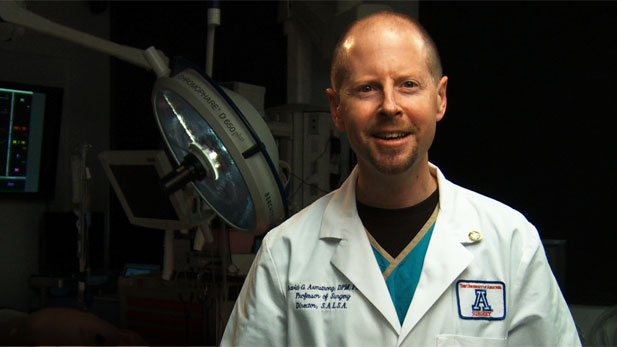 Dr. David Armstrong
Dr. David ArmstrongListen
By Sara Hammond, Arizona Science Desk
We’re all aware that our business and social lives can be hijacked electronically. The University of Arizona is leading national efforts to make sure human medical devices are safe from remote tampering.
We regularly hear reports of people’s personal information being stolen, and of bank and social media accounts being hacked.
While it sounds like a plot line from a medical or crime drama, the potential for medjacking, or malicious medical device hacking, is real.
The UA is involved in creating strategies to protect connected devices such as intravenous drug pumps and pacemakers from tampering.
David Armstrong’s research on regulating wireless medical devices led to the formation of a committee that includes the Department of Homeland Security, the National Security Council, Food and Drug Administration, Department of Defense and National Institutes of Health, and other federal agencies and major health and technology industry companies.
“The goal ultimately is to get out in front of this problem so that science fiction stays science fiction,” Armstrong said.
Armstrong, a surgery professor, says the cyber security committee will look at how key elements embedded in medical devices can be less susceptible to failure or malicious or unintentional breech.
The Arizona Science Desk is a collaboration of public broadcasting entities in the state, including Arizona Public Media.

By submitting your comments, you hereby give AZPM the right to post your comments and potentially use them in any other form of media operated by this institution.